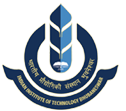- Home
- The Institute
- People
- Schools
- Academics
- Students
- Quick Links
- Admin Notifications related to COVID-19
- International Collaborations
- Link to Other IITs
- Download Forms(Establishment)
- Guest House
- Institute Seminar Series
- Institute Celebrations
- Rajbhasha Ekak
- Transportation Service
- Startup Centre
- Hostel Payment portal
- Sanjeevan Health Centre
- Endowments
- Awards
- ERP
- ERP(New)
- Current Time Table
- Central Library
- Vigilance Complaint Portal
- Cyber Security Best Practices
- Kendra Vidyalaya IIT Bbs Campus
- Campus Weather
- Admissions
- Media
Institute Seminar on India and the SAARC- implications for the neighborhood
| Topic: India and the SAARC- implications for the neighborhood | Speaker: Mr. Anil Trigunayat, (Ambassador, IFS Retd.) |
| Venue: Community Center, Arugul Campus, IIT Bhubaneswar | Date/Time: 7th April 2017 7.30 PM to 8.30 PM |
|
Abstract: SAARC was founded in 1985 with the keen objective to ensure growth, development and progress for the South Asian region through closer collaboration, availing of economic opportunities and cooperation in diverse areas like counter terrorism, disaster management, education, sports and cultural cooperation and exchanges. However even after 30 years the eight member grouping has not been able to effectively handle various constraints and restraints. India is the biggest economy and country in the SAARC and Pakistan’s continued use of terrorism as an instrument of state policy has brought about a hiatus in the future course of SAARC integration. As such the intra-SAARC trade being less than 5% of the total speaks volumes of the inherent issues that the member countries have to contend with and find ways and means to overcome them. Meanwhile India is looking for sub regional arrangements, across SAARC members and those from outside, so that the key infrastructural and developmental projects could be undertaken for the benefit of the people of the region. India is the engine of SAARC. We are committed to SAARC and have taken an asymmetrical route to provide non reciprocal concessions and assistance to the grouping as well as individual countries. However the “big brother syndrome ‘still persists. To offset Indian influence and imagined possibility of any external intervention from India they often try to play India against China in order to seek more financial benefits from both. China that has global ambitions knows that it is important to keep India bogged down in the region so that it can have no counterbalance from Asia. Today we shall explore these issues and discuss the history and future of SAARC and India relationship as well as how our neighbors are looking to manage their interests in and out of SAARC. Biography: Ambassador Anil Kumar Trigunayat has been member of the Indian Foreign Service. He has served in the Indian Missions in Cote d’Ivoire, Bangladesh, Mongolia, USA, Russia, Sweden, Nigeria, Libya and Jordan. In the Ministry of External Affairs he worked in the Economic, West Asia and North Africa, Gulf and Consular Divisions. Mr. Trigunayat also served as Director General/Joint Secretary for the Gulf & Haj Divisions in the Ministry of External Affairs, New Delhi. Thereafter, he worked as Deputy Chief of Mission in the rank of Ambassador in the Embassy of India, Moscow. He was also the Ambassador of India to Libya and Malta during 2012-2014. Ambassador Trigunayat was in Jordan from June, 2014- May 2016. He is a post Graduate in Physics from the Agra/Kumaon University and also studied Russian History, Politics, Culture and Language at the Jawaharlal Nehru University, New Delhi. As a visiting fellow he also conducted research work on “WTO and Regional Trading Blocs” at the Oxford University which was awarded the highest distinction. He is a member of the All India Management Association/DMA as well as that of Oxford and Cambridge Society of India. He is also a member of International Trade Council, Brussels; He is also an Honorary Member of Federation of Korean Industries apart from India Habitat Centre and Civil Services Officers’ Institute. Ambassador Trigunayat is also a member of Association of Indian Diplomats (former Ambassadors) and the Center for International Relations and Community Wellbeing (CIRCW) New Delhi. As a professional and practicing diplomat, while serving Indian interests abroad, he has addressed various audiences and institutions across many countries on Indian growth story and the developments in the South Asian region. Having dealt with West Asia, Africa and Middle Eastern regions for about two decades, he has acquired reasonable insight and expertise in the prevailing nuances in regional developments while cultivating significant contact base across the countries he served in through extensive economic diplomacy and engagement. He has been consistent protagonist for enriching and deepening ties with Africa and the Middle East. One of his expertise has been in conflict management and securing India’s interests in those zones apart from saving and evacuating large number of Indians especially from the war zone in Libya through his personal contacts. Amb. Trigunayat knows French, Russian and Spanish languages. |
|
 |
|



